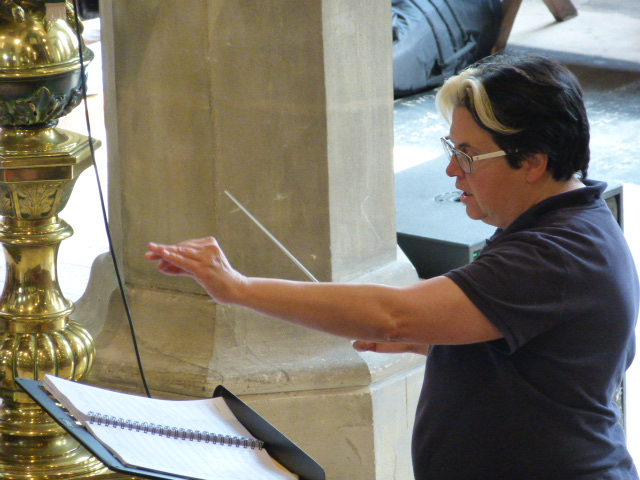
The vision of Retrospect Opera is very simple – to allow people to hear great British operas that they may only have read about, by recording them, to the highest standards possible. Retrospect combines expertise in performing, teaching and editing music, with research, and have all published on British music in our chosen period. David Chandler, professor of English at Doshisha University in Kyoto, gives a short outline of the project
Even devotees of opera in general often know almost nothing of English opera between 1800 and 1945 apart from the Gilbert and Sullivan operettas – and yet, as even a quick glance through Eric Walter White’s standard History of English Opera shows, there was so much more! Retrospect Opera, founded and directed by Valerie Langfield, Andy King and David Chandler, is a registered charity aiming to change this situation.
Retrospect’s mission of increasing knowledge and appreciation of Britain’s operatic heritage is focussed on making recordings of key works and issuing them with appropriate documentary materials to assist their appreciation. The great difficulty, of course, is deciding what most merits revival. Langfield, King and Chandler have had to make some difficult decisions involving balancing both the claims of the works themselves and their potential attractiveness to sponsors.
Retrospect’s first project, to record Ethel Smyth’s The Boatswain’s Mate of 1916 – it will be released this spring, to mark the centenary of the first production – is a good example of the challenges they have to negotiate. It is a delightful, tuneful, very funny comic opera, with one of the most beautiful soprano arias in any twentieth-century opera. But is that enough to persuade people to sponsor a recording? Probably not. Langfield, King and Chandler found that much of the support came in because Smyth was a female composer, rather than because of the intrinsic beauties of the piece. There was also plentiful support from people interested in the suffragette movement (Smyth was a prominent suffragette), or Virginia Woolf (Smyth was a friend of Woolf), or the popular culture of the First World War, or the fact that Smyth lived in Woking much of her life. A hundred donations, of all sizes, from individuals and organisations of all kinds spread around the northern hemisphere, made the project possible.
Langfield, King and Chandler admit that their second project, to record Edward J. Loder’s Raymond and Agnes of 1855, is a rather bigger challenge. Though acclaimed by critics as the finest English opera of the mid-nineteenth century, there are less reasons for people to be interested in Loder than in Smyth. Even the Bath-Bristol area, where Loder came from – he was a member of a prominent family of Bath musicians – has so far shown little interest in supporting this masterpiece by their local worthy.
Retrospect’s third project, a recording of Sir Francis Burnand and Edward Solomon’s operetta Pickwick of 1889, promises to have more general appeal, though. Chandler writes that it should be irresistible to lovers of Charles Dickens and Gilbert and Sullivan – and to anyone who likes both, the perfect Christmas present!
Dame Felicity Lott, the renowned soprano, is best known as a concert artist, and for her many operatic rôles. She has a particularly soft spot for British music, and we are very proud to receive her endorsement:
“I think Retrospect Opera is a brilliant idea. What happened to all the British operas that were popular in their day but have disappeared almost without trace? I am sure there are some gems waiting to be discovered. Valerie Langfield introduced me to some beautiful arias by Balfe and there will be many more that we have never had a chance to hear and appreciate. This is such a worthwhile endeavour and I do hope it will receive support and the necessary funding. “
The Retrospect Opera website is at http://www.retrospectopera.org.uk/

